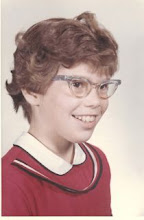MAGNA CARTA II
Things I don’t like in Novels
Things I don’t like in Novels
• Too much “business” or "busyness"
• Fantasy, at least fantasy that takes itself too seriously
• Stories about “important” issues instead of about people
• Stories set in the future (except I did like The Eye, the Ear and the Arm)
• Whiny main characters
• Parents that are too doltish and uncaring (or any adult for that matter – it was hard to believe the extent to which the m.c. was bullied in Hoot, for example)
• Stories with overly literary allusions (and delusions!)
• Violence, esp. to children
• Pat endings
• Overly dramatic speeches that change people’s minds
• Too many details
• Meanness
• Sports
• Lectures
• An overly earnest tone
• Too many coincidences
• Lack of continuity--i.e., at the end of the book, the m.c. forgetting all about someone or something he cared about throughout the story
• Shopping, fashion, chick lit
• Slang
• Superficiality
• Much ado about nothing – I have to care about what the character cares about
Okay; this is my list of dislikes. What are your pet peeves in novels?


These are great. (I laughed at "sports". ditto for me) And I cringed at "much ado about nothing", which is my current work in progress, I fear.
ReplyDeleteI don't like when the writing is self-conscious or I'm reminded that there is a writer instead of being lost in the story. For instance, a writer might use a terrific phrase that catches my eye - but then uses it again. The second time will make me aware of the writer. (How come I can't be so succinct, like you....)
I also don't like "telling" emotions or too much showing of emotions. I prefer brief showing that has big impact.
I know exactly what you mean about self-conscious writing -- I just read The Maytrees, by Annie Dillard. The writing is stunning -- each sentence a jewel -- but the perfection kept me from appreciating the story.
ReplyDeleteAnd I sincerely doubt your new book is much ado about nothing. When I wrote that, I wasn't thinking of those wonderful, small moments in life which you are so skilled at exploring. I was thinking of stories in which the character's worries seemed overly superficial. I worry that your withdrawal from Cafe Francais, the old style, is causing you to be overly critical of yourself. I don't think you could tell a bad story if you tried.
Hello, came over to visit your blog from Barbara's blog.
ReplyDeleteGreat lists!
ReplyDeleteI'm guessing this means I won't be able to count on your support for my novel: BLOODY MASSACRE ON THE FOOTBALL FIELD: A GUIDE FOR GIRLS WHO CAN'T FIND DATES.
Grier, if you write that book, I'll read it! ;-)
ReplyDeleteI hate it when the author has spent chapters creating a good mystery then solves it and ends the story too abruptly in the last chapter. I want to know more than "the butler did it, the end".
ReplyDeleteWhining, for sure.
ReplyDeleteDoltish parents. I love that phrase. And I, like you, hate them in books. Flawed is good; doltish is too convenient.
ReplyDeleteI do want to say a word in favor of "stories set in the future." When I read about a world not yet a reality, I think about the ways this present world could prevent or feed into whether or not that reality comes about. Who we are now is the seed of who we will become. So a novel about the future is really a novel about us now. About being a conscious person capable of choices and change and not just a person swept into the future, blindly.
I realize some SF is just guns in space or possibly, sports in space, but there is also a great deal of thoughtful exploration of what it means to be human. For that, I will always love a great story set in the future.
Sara,
ReplyDeleteRemember this is my personal list! I think you make a great argument for SF and I personally love books like Feed and Epitaph Road, but generally that setting is not one that grabs me right off.